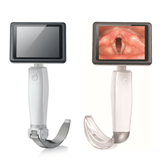The survey of 823 medical specialists from across the country, which has just been published in the Internal Medicine Journal, found that 96 percent received offers of food, 94 percent were offered items for the office, 51 percent of those surveyed reported offers of gifts for personal use and the majority were offered travel support to attend conferences (52 percent).
One in 20 (41 practitioners) reported offers of personal gifts or activities that were in clear breach of the guidelines, such as offers of wine, flowers, tickets to entertainment or sporting events and funds in exchange for accepting promotional visits.
The paper comes as the Australian Competition and Consumer Commission (ACCC) published a new code of conduct that will require pharmaceutical companies to detail the cost and type of expenses they provide to doctors.
In one case mentioned in the research, a ‘department’ asked for $60,000 by a pharmaceutical company in return for staff members meeting with the company’s representatives. This is also in clear contravention of the guidelines.
“This may be just the tip of the iceberg,” said Associate Professor Paul McNeill, the lead author of the paper and a bioethicist at the University of New South Wales (UNSW). “Although the gifts or requests that contravened the rules were from a small proportion of respondents, they were all volunteered and may be indicative of a practice that is actually more widespread.
“Even though the majority of gifts and requests for support do comply with the guidelines, this research shows that the relationship between pharmaceutical companies and medical specialists is a very cosy one indeed,” said Professor McNeill, who is in the School of Public Health and Community Medicine.
“Previous research shows that doctors are influenced in their prescribing by gifts, even when they think they are not.”
Other findings include:
- 52 percent of respondents were offered travel expenses to both international and national destinations, with a mean value of $7,559 (international) and $1,395 (national). In some cases, business class and first class airfares were provided.
- 15 percent of specialists requested financial support from pharmaceutical companies for activities and items including conferences, travel, educational activities, salaries and donations to specific funds.
- 18 percent were offered equipment including video editing technology, cameras and blood pressure monitors.
“It is apparent that a great deal is offered to medical specialists by pharmaceutical companies and most of what was offered was accepted (66 to 79 percent).
“The relationship is very much a two-way street, with the medical specialists approaching the drug companies in many instances to support their research and conferences,” said Professor McNeill.
“The new ACCC guidelines still don’t go far enough. There is a need for greater consistency in ethical standards,” concluded Professor McNeill. “Consideration should be given to more conservative standards on gifts, travel and support, to ensure that physicians’ judgements are free from any real or perceived influence from industry.”
The other authors of the report are Ian Kerridge (Sydney University), David Henry (University of Newcastle), Barrie Stokes (University of Newcastle), Suzanne Hill (University of Newcastle), David Newby (University of Newcastle), Graham McDonald (UNSW), Ric Day (UNSW), Jane Maguire (Gosford Hospital) and Kim Henderson (University of Newcastle).






-160x160-state_article-rel-cat.png)




-160x160-state_article-rel-cat.png)






